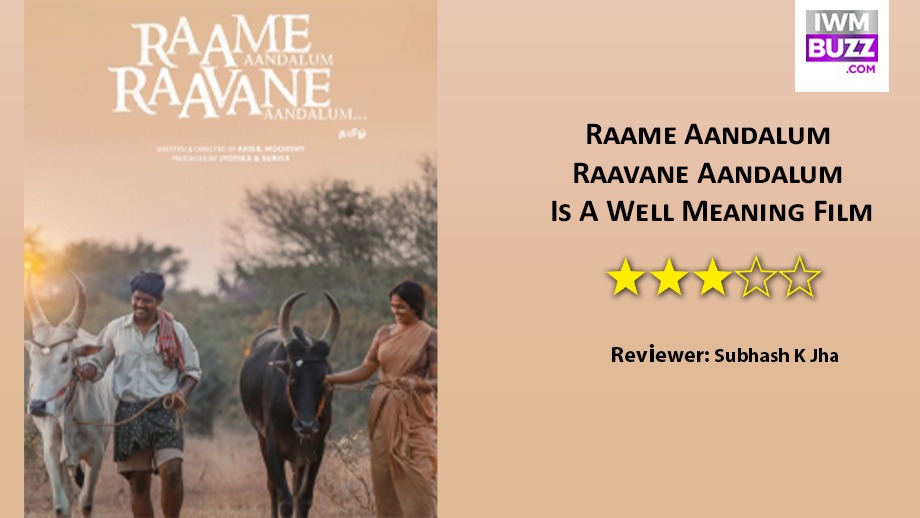Raame Aandalum Raavane Aandalum(Amazon Prime video)
Starring Ramya Pandian, Vani Bhojan, Mithun Manickam, Written & Directed by Arisil Moorthy
Rating: ***
It breaks one’s heart to not like this earnest-to-god film. It’s like your little niece spending the whole day cooking for you , then spreading out the meal on the table and waiting eagerly for you to eat and appreciate the meal.
How can you tell the truth about an effort so sincere ? Raame Aandalum Raavane Aandalum(RARA) is a well-meaning film. But it is not an entertaining or engaging film. Not by any stretch of the imagination. The script is stiff trite and selfconsciously conscientious. Its heart bleeds for the neglect of rural India.
By simply venting one’s grief and concern, no matter how genuine and well-earned, a film cannot earn brownie points. RARA suffers from a serious scarcity of skilled storytelling. The plot is a simple fable about an economically deprived village in Tamil Nadu called Poocheri where a simple uneducated couple Kunni(Mithun Manickam) and Veerayi(Ramya Pandian) mourn for their missing “kids”.
The “kids” turn out to be two bulls Kurrupa and Villaiya whom the couple treat like their own biological children. These are bulls you never find rampaging in a China shop.From this one-note jokey point, the plot heaves and lurches into a series of clumsily designed episodes, each more awkward than the other. Finally we are left looking at nothing more than a very poor echo of Anusha Rizvi’s Peepli Live which had no great shakes in the first place.
From the performances to the dialogues, everything in RARA appears to be undercooked and jejune. The jokes about a Granny plastering her face with powder to be photographed or a wretched politician being asked by the spunky Veerayi, “Suppose two of your kids are lost, how would you feel if two other kids are given to you in their place?” seem to patronize rural India , thereby defeating the film’s very purpose of existence.
By the time a stereotypical news journalist Narmada(Vani Bhojan) shows up in Poocheri, we know that the script is rapidly running out of tricks to keep the actors invested. Both the lead actors look distinctly ill-at-ease shedding tears for their “kids”.They are new. But they are not convinced about what they are doing.
More conviction in the implausible plot could have been generated from a more authentic bedrock of emotions. Everyone here seems to be echoing a cover version of rural poverty rather than feeling any original emotions.


